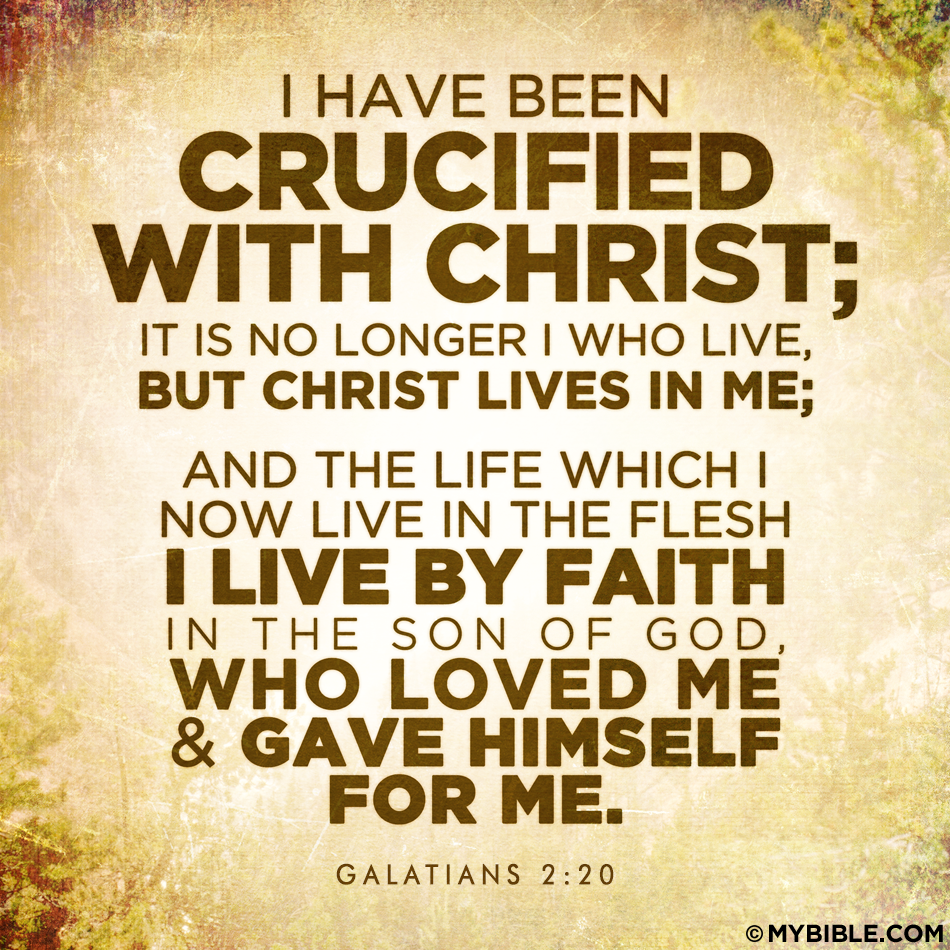
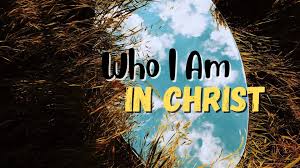
Life on earth is not about you or me, or anyone else we happen to know for that matter. Yes, each of us one of a kind and totally unique. Our genome, (should we be ever be able to read it in full) probably records our entire history as sons and daughters of First Parents, Adam and Eve.
It is often noted that great men of history put their pants on one leg at a time. We are constrained to live out our entire lives in less than a hundred years. Adam and the patriarchs lived ten times longer. Is something wrong with the operating system of the universe? Do we sink or swim with only limited opportunities to start over again, if we mess up the first time?
We are all damaged goods from conception. Cells in our bodies start to die and begin to be replaced soon after we are born. Much time and effort is spent training us, feeding us, teaching us, investing in our lives, in hopes we are enabled to live “happily ever after,” --and give something back to the next generation. We are also trapped in linear, historical time. We do not all make good choices all of the time. Even at our very best we fall short!
“But now the righteousness of God apart from the law is revealed, being witnessed by the Law and the Prophets, even the righteousness of God, through faith in Jesus Christ, to all and on all who believe. For there is no difference; for all have sinned and fall short of the glory of God, being justified freely by His grace through the redemption that is in Christ Jesus, whom God set forth as a propitiation by His blood, through faith, to demonstrate His righteousness, because in His forbearance God had passed over the sins that were previously committed, to demonstrate at the present time His righteousness, that He might be just and the justifier of the one who has faith in Jesus.” (Romans 3:21-26)
But life is not about you and me and the data deposit we are leaving behind in the record books of human history.
Jesus Christ in you is the Real New You
“He [Jesus] is the image of the invisible God, the firstborn over all creation. For by Him all things were created that are in heaven and that are on earth, visible and invisible, whether thrones or dominions or principalities or powers. All things were created through Him and for Him. And He is before all things, and in Him all things consist. And He is the head of the body, the church, who is the beginning, the firstborn from the dead, that in all things He may have the preeminence.
For it pleased the Father that in Him all the fullness should dwell, and by Him to reconcile all things to Himself, by Him, whether things on earth or things in heaven, having made peace through the blood of His cross.” (Colossians 1:15-20)
Human history is not about the progress and improvement of man and society. Even a small amount of objectivity about life on earth, as given to us in the Bible for instance, should be a wake up call.
The human dilemma is often studied under the heading “Original Sin.” We are far from perfect and badly flawed! We are as selfish as all get out and we only adjust reluctantly to heavenly rule. God’s cosmic consequence engines never shut down. Not only are we all self-referential instead of God-centered in our thinking, we all at times act as if we were gods!
“God stands in the congregation of the mighty;
He judges among the gods.
How long will you judge unjustly,
And show partiality to the wicked?
Selah
Defend the poor and fatherless;
Do justice to the afflicted and needy.
Deliver the poor and needy;
Free them from the hand of the wicked.
They do not know, nor do they understand;
They walk about in darkness;
All the foundations of the earth are unstable.
I said, “You are gods,
And all of you are children of the Most High.
But you shall die like men,
And fall like one of the princes.”
Arise, O God, judge the earth;
For You shall inherit all nations.” (Psalms 82)
We all need outside help! It is for this reason many become "religious"! (By instinct everyone is religious to some degree.) One extreme is to be a “self-made” person "who worships his creator," --assuming there is no higher power on his side to help or hinder. Some forms of religion destroy individuality altogether insisting that we submit to precepts, guidelines, protocols which enslaved and destroy. None of this nonsense is in the Bible!
Our Creator is an entirely whole (holy) and living Being. We exist solely because He made us very much like Himself and endowed us with considerable freedom of the will. Love from God can be offered to us and even pleaded for, but love can never be coerced or forced on us. If one possible choice is to agree to know and love and serve God, the other choice must be to not agree with the Creator’s offer. Meanwhile our long suffering Creator pours vast amounts of energy and power into the cosmos to sustain the universe another 24 hours.
Actually the God (who wishes us to know Him) is the Creator of everything. He existed as a living Person before there was space, or matter, or time. God is the Creator of everything that is—including time and space and the flow of history.
.
“Jesus Christ is the same: yesterday, today, and forever.” (Hebrews 13:8)
God the Father conceived of the original design of the universe, Jesus the Son of God spoke the universe into being (John 1:1), and God the Holy Spirit undertook the sustenance and management of everything.
“In the beginning was the Word, and the Word was with God, and the Word was God.
He was in the beginning with God. All things were made through Him,
and without Him nothing was made that was made.” (John 1:1-3)
Jesus, the Word, engaged Adam and Eve personally before after after the Fall. Jesus, the eternal Son, has interacted, and personally, with every human being who is descended from Adam and Eve ever since. (One estimate is 100 billion persons).
 At the appropriate time the Son of God became a man and chose to live an ordinary life among us, (see Philippians 2). He never once acted on His inherent power as God. Jesus did not however become detached and objectified by living as He lived. He lived a life “separate from sinners.” Jesus lived out his ~33 year sojourn among us—demonstrating that man as created to live in dependence on his Creator. Jesus did not act autonomously as we do today. But we are not self sufficient--we just act as if we were! We are really only house guests in Someone Else’s universe.
At the appropriate time the Son of God became a man and chose to live an ordinary life among us, (see Philippians 2). He never once acted on His inherent power as God. Jesus did not however become detached and objectified by living as He lived. He lived a life “separate from sinners.” Jesus lived out his ~33 year sojourn among us—demonstrating that man as created to live in dependence on his Creator. Jesus did not act autonomously as we do today. But we are not self sufficient--we just act as if we were! We are really only house guests in Someone Else’s universe.
Jesus focused His adult life not on teaching nor even in training disciples. He knew His purpose was to die a unique kind of death. He had been sent as a cosmic sacrifice to save us from ourselves.
“...For the love of Christ compels us, because we judge thus: that if One died for all, then all died; and He died for all, that those who live should live no longer for themselves, but for Him who died for them and rose again.
Therefore, from now on, we regard no one according to the flesh. Even though we have known Christ according to the flesh, yet now we know Him thus no longer. Therefore, if anyone is in Christ, he is a new creation; old things have passed away; behold, all things have become new. Now all things are of God, who has reconciled us to Himself through Jesus Christ, and has given us the ministry of reconciliation, that is, that God was in Christ reconciling the world to Himself, not imputing their trespasses to them, and has committed to us the word of reconciliation.
Now then, we are ambassadors for Christ, as though God were pleading through us: we implore you on Christ’s behalf, be reconciled to God. For He made Him who knew no sin to be sin for us, that we might become the righteousness of God in Him.” (2 Corinthians 5:14-21).
The fact that Jesus died for all since Adam is stated several times in the New Testament:
“For God so loved the world that He gave His only begotten Son, that whoever believes in Him should not perish but have everlasting life. For God did not send His Son into the world to condemn the world, but that the world through Him might be saved.” (John 3:16-17)
“...we have an Advocate with the Father, Jesus Christ the righteous. And He Himself is the propitiation for our sins, and not for ours only but also for the whole world.” (1 John 2:1-2)
“This Jesus God has raised up, of which we are all witnesses. Therefore being exalted to the right hand of God, and having received from the Father the promise of the Holy Spirit, He poured out this which you now see and hear.” (Acts 2:32-33)
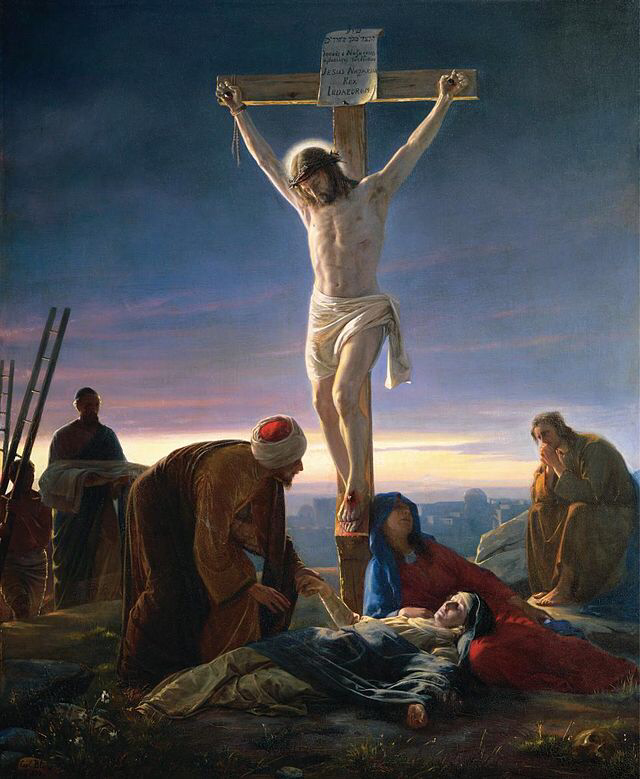 Jesus does not violate our “free will” even though we are less free than we imagine we are! Jesus is polite and patient towards each one of us. Even His enemies were offered forgiveness and mercy until their time ran out.
Jesus does not violate our “free will” even though we are less free than we imagine we are! Jesus is polite and patient towards each one of us. Even His enemies were offered forgiveness and mercy until their time ran out.
Is it any wonder then that Jesus is still the most amazing human being who ever lived. He is also the sole heir of all things. The universe (aspects both seen and unseen) are under His management and control. His resources are not diluted simply because you and I agree to know Him deeply. He manages everything one-on-one and not through delegated overlords or directors. His personal involvement is in the details of managing the cosmos and its inhabitants. Each of us has His full attention if we but allow Him access to our lives as Lord.
“He brought me to the banqueting house, And his banner over me was love.” (Song 2:4)
The life of us who follow Jesus has been called the “exchanged life” by more than one Christian down through history. Galatians 2:20-21 is the best focal point for many of us:
“I have been crucified with Christ; it is no longer I who live, but Christ lives in me; and the life which I now live in the flesh I live by faith in the Son of God, who loved me and gave Himself for me. I do not set aside the grace of God; for if righteousness comes through the law, then Christ died in vain.” (Galatians 2:20, 21)
Ray Stedman said, “...the whole Christian walk is to repudiate the life of the flesh with its self-centeredness and to rely upon the work of the Spirit of God to reproduce in us the life of Jesus Christ. How beautifully all this is gathered up in the verse (Galatians chapter 2, verse 20)...The old self-centered "I" has been crucified with Christ so that it no longer has any right to live, and your task and my task is to see that it doesn't live, that it is repudiated, that it is put aside, along with its determination to express what Paul calls "the works of the flesh."
Paradoxically the individual who loses his life will find it. Jesus is Personal to each and every follower and has “all the time in the world” for each one of us, yet He is in charge of the entire universe at the same time! How silly of us to suppose that we can help Him out or give Him wise advice. Amazing beyond belief is the discovery we can make that Jesus teams up with us and actually “incarnates” us with Himself.
Andrew Farley, Church Without Religion
The Liberating Secret, Cynthia Pierce
Norman Grubb on the Exchanged Life
Hudson Taylor letter on the Exchanged Life
The recording angel is, in Judaic, Christian, and Islamic angelology, one or more angels assigned by God with the task of recording the events, actions, and/or prayers of each individual human. In the Book of Malachi 3:16, the prophet describes Heaven as having conferring angels, and "The LORD took note and listened, and a book of remembrance was written before him of those who revered the LORD and thought on his name." In Judaic thought, Gabriel is the principal recording angel, as shown in Ezekiel 9:3-4, where he is "the man clothed in linen, who had the writing case at his side" who put the mark of Passover on Jewish houses in Egypt. (Wikipedia)
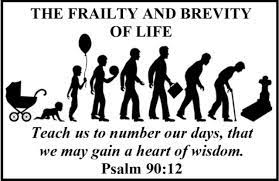
And in the New Testament:
“Then I [John] saw a great white throne and Him who sat on it, from whose face the earth and the heaven fled away. And there was found no place for them. And I saw the dead, small and great, standing before God, and books were opened. And another book was opened, which is the Book of Life. \
And the dead were judged according to their works, by the things which were written in the books. The sea gave up the dead who were in it, and Death and Hades delivered up the dead who were in them. And they were judged, each one according to his works.
Then Death and Hades were cast into the lake of fire. This is the second death. And anyone not found written in the Book of Life was cast into the lake of fire.” (Revelation 20:11-15)
There is One Man who is now running the whole show. One man, the head of a whole new race, is now exercising perfect dominion over everything. Further, this man Christ Jesus is already sharing the power of His dawning kingdom with those who are in His family. The teaching of the New Testament is that now, at this very moment, there is a Man in heaven appearing in the presence of God for us. He is as certainly a man as was Adam or Moses or Paul; he is a man glorified, but his glorification did not de-humanize him. Today he is a real man, of the race of mankind, bearing our lineaments and dimensions, a visible and audible man, whom any other man would recognize instantly as one of us. But more than this, he is the heir of all things, Lord of all lords, head of the church, firstborn of the new creation. He is the way to God, the life of the believer, the hope of Israel, and the high priest of every true worshiper. He holds the keys of death and hell, and stands as advocate and surety for everyone who believes on him in truth. Salvation comes not by accepting the finished work, or deciding for Christ; it comes by believing on the Lord Jesus Christ, the whole, living, victorious Lord who, as God and man, fought our fight and won it, accepted our debt as his own and paid it, took our sins and died under them, and rose again to set us free. This is the true Christ; nothing less will do. (A. W. Tozer) |
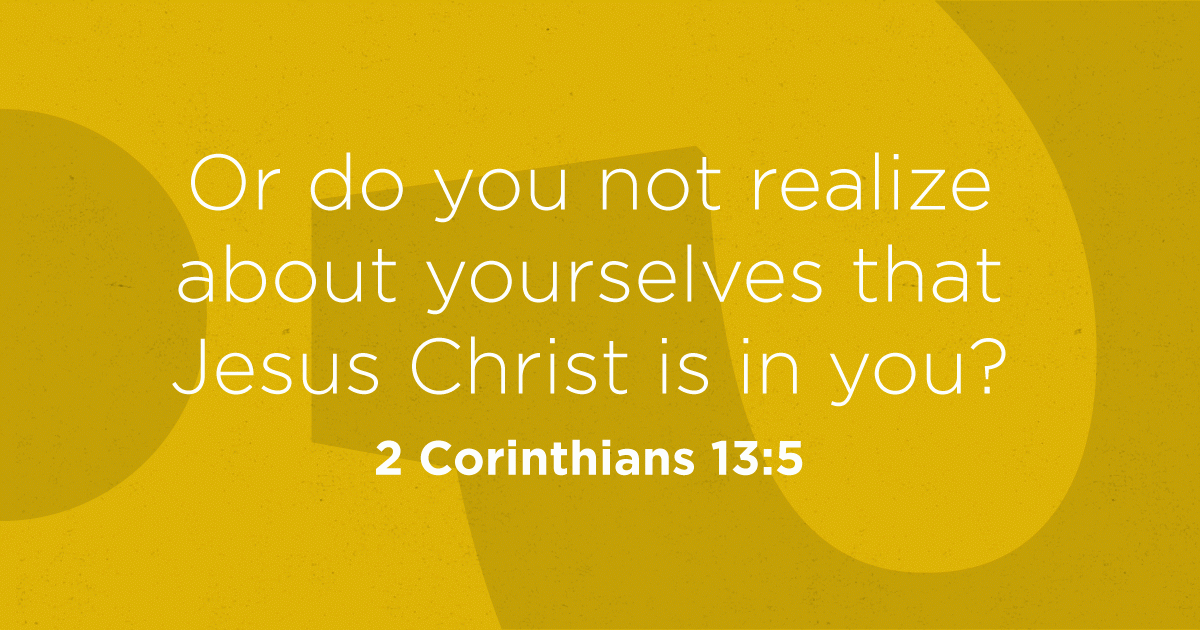
WHAT IS THE EXCHANGED LIFE?
The term "Exchanged Life" is taken from the well-known passage in Isaiah 40:31. English translations refer to those who wait on or hope in the Lord as being able to "renew" their strength. All commentaries and study Bibles that deal with this verse note that the literal translation of the Hebrew word for "renew" is "exchange." Those who wait on the Lord will exchange their strength for His strength, as stated in verses 25-30.
The term "Exchanged Life" is directly related to the believer's discovery of a new identity in Christ. The believer is a new creation; one born of God. What was once true is no longer true. J. Hudson Taylor made the English term "Exchanged Life" popular through his testimony of how God made him a new man...
To elaborate further, we believe that the believer partakes of eternal life (Christ's Life) at the time of new birth, that identification with Christ in His crucifixion, burial, resurrection, and ascension brought the death of the "old man" and the life of the "new man." This may become a revealed experiential reality through a decision to lose one's life (total surrender) and to appropriate the Christ life by faith, and is continuously revealed by abiding in the Spirit and pursuing holiness. Victorious living is Christ living His life through the believer by the believer's faith and obedience under the Holy Spirit. This does not teach passivity, sinless perfection, or the deification of man. (The Exchanged Life Ministries)
From our Archives
"Exchanged Life" is directly related to the believer's discovery of a new identity in Christ. The believer is a new creation; one born of God. What was once true is no longer true. J. Hudson Taylor made the English term "Exchanged Life" popular through his testimony of how God made him a new man...
To elaborate further, we believe that the believer partakes of eternal life (Christ's Life) at the time of new birth, that identification with Christ in His crucifixion, burial, resurrection, and ascension brought the death of the "old man" and the life of the "new man." This may become a revealed experiential reality through a decision to lose one's life (total surrender) and to appropriate the Christ life by faith, and is continuously revealed by abiding in the Spirit and pursuing holiness. Victorious living is Christ living His life through the believer by the believer's faith and obedience under the Holy Spirit. This does not teach passivity, sinless perfection, or the deification of man.
From our Archives

Wayne Alder
On a recent Thursday a college friend of mine dropped by on his motorcycle, and according to the usual custom of our times together we decided to study an entire book of the Bible. Nine hours later--in two sessions--we had gone through all of Romans verse by verse in considerable detail.
Romans has been an all-time favorite book of mine for many years. I've come to believe it ought to be taught and studied regularly by every follower of Christ. Covering the entire book in two study sessions gave Wayne and me a great overview of this magnificent epistle.
I was especially struck this time through Romans concerning the importance of transitional Chapter 7. When a person becomes a Christian he or she is called to live a radically different life style. For many professing Christians the dynamically different nature of Authentic Christianity is not always obvious, and can be easily overlooked.
"We have all been inoculated with Christianity, and are never likely to take it seriously now! You put some of the virus of some dreadful illness into a man's arm, and there is a little itchiness, some scratchiness, a slight discomfort -- disagreeable, no doubt, but not the fever of the real disease, the turning and the tossing, and the ebbing strength. And we have all been inoculated with Christianity, more or less. We are on Christ's side, we wish him well, we hope that He will win, and we are even prepared to do something for Him, provided, of course, that He is reasonable, and does not make too much of an upset among our cozy comforts and our customary ways. But there is not the passion of zeal, and the burning enthusiasm, and the eagerness of self-sacrifice, of the real faith that changes character and wins the world." --A. J. Gossip, From the Edge of the Crowd [1924]
The Apostle Paul announces at the beginning of his letter to the Romans that he has some extraordinarily good news for the house churches in Rome (which he hoped to soon visit). Writing from Corinth, he dispatched his letter via a Christian business woman named Phoebe. She hand-carried this priceless treasure to Rome by boat (16:1,2). In closing his letter, Paul sent greetings to the many Christians he already knew who were living in Rom. They were Jews, Greeks, slaves, rich Romans, and even believers in Caesar's household. We do not know who founded the church in Rome but it was not Paul and not one of the other original apostles.
Instead of immediately launching into the very good news which he has for the Christians in Rome, Paul goes into great detail describing the very bad news of the true human condition. No one is excluded from his all-encompassing legal indictment (Chapters 1:18-3:20).
In The Problem of Pain, C.S. Lewis says that man before the Fall surely found it normal and natural and delightful to serve God willingly all day, every day, even though the freedom to choose something other than God was open to him,
"Now the proper good of a creature is to surrender itself to its Creator--to enact intellectually, volitionally, and emotionally, that relationship which is given in the mere fact of its being a creature. When it does so, it is good and happy. Lest we should think this a hardship, this kind of good begins on a level far above the creatures, for God Himself, as Son, from all eternity renders back to God as Father by filial obedience the being which the Father by paternal love eternally generates in the Son. This is the pattern which man was made to imitate which Paradisal man did imitate--and wherever the will conferred by the Creator is thus perfectly offered back in delighted and delighting obedience by the creature, there, most undoubtedly, is Heaven, and there the Holy Ghost proceeds.
"In the world as we now know it, the problem is how to recover this self-surrender. We are not merely imperfect creatures who must be improved: we are, as Newman said, rebels who must lay down our arms. The first answer, then, to the question why our cure should be painful, is that to render back the will which we have so long claimed for our own, is in itself, wherever and however it is done, a grievous pain. Even in Paradise I have supposed a minimal self-adherence to be overcome, though the overcoming, and the yielding, would there be rapturous. But to surrender a self-will inflamed and swollen with years of usurpation is a kind of death. We all remember this self-will as it was in childhood: the bitter, prolonged rage at every thwarting, the burst of passionate tears, the black, Satanic wish to kill or die rather than to give in. Hence the older type of nurse or parent was quite right in thinking that the first step in education is 'to break the child's will'. Their methods were often wrong: but not to see the necessity is, I think, to cut oneself off from all understanding of spiritual laws. And if, now that we are grown up, we do not howl and stamp quite so much, that is partly because our elders began the process of breaking or killing our self-will in the nursery, and partly because the same passions now take more subtle forms and have grown clever at avoiding death by various 'compensations'. Hence the necessity to die daily: however often we think we have broken the rebellious self we shall still find it alive. That this process cannot be without pain is sufficiently witnessed by the very history of the word 'Mortification'…" (from Chapter 6, The Problem of Pain by C.S. Lewis)
Lewis goes on to say that modern man thinks all is well between him and God if he is reasonably happy and nothing much is going wrong in his life. George Barna's research shows that most all Americans expect an open door to heaven when they die. Nothing could be further than the truth! Lewis says in effect that people need to hear the bad news first or they will not be willing to hear the exceedingly good news of God's great love for them.
I have long felt the opening chapters of Romans fit me very well in regard to my motives, thoughts, words and deeds.
"There is none righteous, no, not one; There is none who understands; There is none who seeks after God. They have all turned aside; They have together become unprofitable; There is none who does good, no, not one." "Their throat is an open tomb; With their tongues they have practiced deceit"; "The poison of asps is under their lips"; "Whose mouth is full of cursing and bitterness." "Their feet are swift to shed blood; Destruction and misery are in their ways; And the way of peace they have not known." "There is no fear of God before their eyes." Now we know that whatever the law says, it says to those who are under the law, that every mouth may be stopped, and all the world may become guilty before God. Therefore by the deeds of the law no flesh will be justified in His sight, for by the law is the knowledge of sin. But now the righteousness of God apart from the law is revealed, being witnessed by the Law and the Prophets, even the righteousness of God, through faith in Jesus Christ, to all and on all who believe. For there is no difference; for all have sinned and fall short of the glory of God…" (3:10-23)
The good news Paul moves on to describe is very good news indeed--if only one will receive it, believe it, and put it into effect in daily life. Romans is replete with legal terms and words we don't commonly use in daily life such as righteousness, justified, imputed, expiation, propitiation, and so on.
Paul explains that none of us can save ourselves, yet we are all desperately lost and desperately in need of rescuing, healing, and transforming. We are usually oblivious to the big picture, preoccupied instead with such things as rearranging the deck chairs on the Titanic. Religion is an escape mode for many--but religion can not save. Trying harder is to no avail and self-improvement programs don't work. The default mode for man is self-righteousness, which is highly offensive to God. All sorts of things are terribly out of kilter in us--we are all in desperate need of God and we don't usually believe it.
True righteousness belongs to Jesus Christ alone and is only credited to one's account when we trust Jesus. Paul carefully explains that our willingness to be identified with Jesus in His death, burial and resurrection allows God to transfer all our sins into Christ on the cross--(and from the cross out into eternity, totally removed from us forever). With Christ on the cross, God also quietly puts to death our old sin nature, killing the old natural life we inherited from Adam while making us brand new persons on the inside. These amazing cosmic events take place in the invisible realm of the Spirit without us usually feeling much of anything, except a new sense of peace and hope. (see The Crucified One)
In Chapter Six Paul explains that, as new persons in Christ, our freedom to choose between good and evil is liberated for the first time ever. Previously we were not free to serve God at all, and we could do nothing to please God or to earn favor with Him.
"And you He made alive, who were dead in trespasses and sins, in which you once walked according to the course of this world, according to the prince of the power of the air, the spirit who now works in the sons of disobedience, among whom also we all once conducted ourselves in the lusts of our flesh, fulfilling the desires of the flesh and of the mind, and were by nature children of wrath, just as the others. But God, who is rich in mercy, because of His great love with which He loved us, even when we were dead in trespasses, made us alive together with Christ (by grace you have been saved), and raised us up together, and made us sit together in the heavenly places in Christ Jesus, that in the ages to come He might show the exceeding riches of His grace in His kindness toward us in Christ Jesus. For by grace you have been saved through faith, and that not of yourselves; it is the gift of God, not of works, lest anyone should boast. For we are His workmanship, created in Christ Jesus for good works, which God prepared beforehand that we should walk in them." (Ephesians 2:1-10)
The book of Romans seems to provoke endless discussions about election, predestination, and free will. Suffice it to say that in Chapter 6 Paul limits the discussion by telling us that we were all born to be slaves--we are destined to be the servants of another forever. As followers of Jesus, we are now able to give ourselves freely as voluntary bond-slaves of Jesus. If we decline, we default to being the slaves of sin--which leads to death. There is no third choice. Serving self is not on the list! Our freedom as slaves consists of the fact that we are free to chose one of two masters only. This is how we are created.
So radical is the change within us when we become Christians that by nature we are enabled to serve Jesus gladly and willingly, going on to enjoy greater freedom and a higher mode of life than our original parents knew before the Fall. Being a slave of Jesus takes getting used to, but the result is what Paul calls in Chapter 8, "the glorious liberty of the sons of God."
Romans 7 teaches several key things about being a Christian. We were previously "married to sin" as it were, but now we are joined inseparably to Christ. Though we are free from the Law, the law is still alive and ready to expose hidden sin and thus draw us closer to God. The Law is a description of the very character of God--if we are going to live in harmony with God as the Person He is, we are the ones who have to adjust and change. When we pay attention to Christ, the Law is fulfilled in us day by day by the indwelling life of our Lord. Meditating on the Law, as seen for example in Psalm 119, is more than profitable for us because (properly understood) the Law allows us to know God ever more deeply. Romans 7:1-4 illustrates how all sin can be thought of as spiritual adultery. The root problem of evil in the human heart is our not loving God wholeheartedly, and our allowing other rival loves to displace Jesus as Number One in our minds and hearts.
The tricky part of being a Christian is discovering that we are actually utterly helpless to do anything good as Christians. Likewise we have no natural powers to overcome temptation and sin. Here is where the lost teaching of the "Exchanged Life" needs to be taught again in our day. Short summary: Our natural life in Adam is called "the flesh," in the Bible. The flesh has obvious bad traits such as lying, stealing, cheating, drunkenness and immorality. But the "best of the flesh" (doing our best to serve God in our own effort for example) is equally as bad as far as God is concerned. King Saul's experience recorded in First Samuel 15 illustrates this point vividly. On the cross, God has said "no" to the flesh, to the law of self-effort, for all time and eternity.
When Wayne and I got to Romans Chapter 7 in our time together, I told him about a pivotal experience in my life which took place forty years ago. One morning Ray Stedman dropped by my house and took me to a men's retreat where the speaker was a slightly built enthusiastic speaker named Norman Grubb. Grubb's specialty was teaching on the truths of Romans--6, 7, and 8 especially. I was soon convinced the man was a heretic. What he said sounded very unconventional and strange--though I admit his ideas were strangely attractive. If he was a false teacher, why was he the featured speaker at the men's retreat of a sound church?
Not long after that weekend, Major Ian Thomas visited our church and gave a dynamic, unforgettable series of messages on this new "Exchanged Life." I have been very grateful for the truth of the exchanged life ever since.
I explained to Wayne, though I think he already knew, that the whole secret of being a follower of Christ is to learn, (and to relearn), that only Jesus can live the Christian life. We must give Him permission to live His life through us day by day. Paul calls this mode of living "our reasonable service" in Chapter 12.
In Romans 7 Paul shows us that when "I" do anything to serve God in my own strength "I" will always fail, and when "I" determine to avoid sin by my own will power, "I" am found to fail. A daily death-to-self is what God asks of me.
God the "great I AM" has taken up residence in my heart--the Holy Spirit has come to join Himself with my spirit. My human spirit is now the lesser, subservient "i am." This new inner partnership, or union of two spirits--my spirit with God's Spirit--is really a Lover-beloved union of two persons, not a mutually convenient arrangement such as a business partnership. Knowing God as He wishes to be known is an interactive relationship of intimate love which fulfills the great commandment.
This subtle transformation of our ego--our deepest sense of self--is also noted by Paul in Galatians:
"I have been crucified with Christ; it is no longer I who live, but Christ lives in me; and the life which I now live in the flesh I live by faith in the Son of God, who loved me and gave Himself for me." (2:20)
The first time any of us imagines turning over all of his or her life to Jesus, giving Jesus permission to run things one-hundred percent, most of us imagine that we'll be forced to live dull, churchy, boring lives. Why can't I run my own life, or at least those areas of my life where I have the most experience? The answer is that we were not created to live in independence from God! It is a big lie (in fact, THE lie of the garden) that we can be our own gods, run our own lives, determine our own future, and pretty much do as we please.
"The Christian life is different: harder, and easier. Christ says, "Give me all. I don't want so much of your time and so much of your money and so much of your work. I want you. I have not come to torment your natural self, but to kill it. No half-measures are any good. I don't want to cut off a branch here and a branch there, I want to have the whole tree down. Hand over the whole natural self, all the desires, which you think innocent as well as the ones you think wicked-the whole outfit. I will give you a new self instead. In fact, I will give you Myself; my own will shall become yours." (C. S. Lewis)
We tend to underestimate the nature of God's great love for us. "God is Love" --He created us for relationships of love. He understands us. His deep desire is to fulfill us. The world stifles individuality and uniqueness, Jesus liberates us so that we become whole and well-rounded--realizing in the end all that was originally created in us. God's nature is to pour himself out for others. He does not live "for Himself" as we are prone to do. The fulfillment for all eternity for the Persons of the Godhead is to be always pouring out love, and responding to love. Love requires at least two persons. Both must give their consent or there can be no relationship, and real love involves both initiating and responding. (see A Personal God)
Then there all those paradoxes Jesus taught us about losing one's life in order to find it, about taking up one's cross daily, and the necessity of a grain of wheat falling into the ground and dying in order to live. These ominous-sounding teachings are all part of the joyful good news of the Exchanged Life.
Norman Grubb said that we could think of Jesus being "the real new you" inside. As we allow Jesus to live in and through us we become more "ourselves," our individuality is neither stifled nor replaced; it is unfolded like a blossom. We are not unlike a butterfly, emerging from a cocoon when we become new creations in Christ yielded to our maker.
Christians are indeed "predestined to be confirmed to the image of God's son," but we shall not find that we have become clones of the historical Jesus in the end--we'll simply be the men and women we always wanted to be--unique, one of a kind, whole and free, without spot or blemish. God made no automatons--every single person ever created is one-of-a-kind, and of great value and worth to our Creator. "Rarely for a righteous man will one dare to die…but God demonstrates His love for us, in that while we were yet sinners, Christ died for the ungodly." (5:8)
"People who equate orthodoxy with authenticity find it hard to even consider the possibility that, despite the correctness of all their doctrinal positions, they may have missed the deepest reality of the authentic Christian life. But we must never forget that true Christianity is more than teaching--it is a way of life. In fact, it is life itself. "He who has the Son has life," remember? When we talk about life, we are talking about something that is far more than mere morality, far more than doctrinal accuracy. Life is a positive quality, not negative--a description of what we fundamentally are, not what we are not. The eternal life that Jesus brings to us is radical, not superficial. It is humble, not self-promoting. It is compassionate, not indifferent. It is courageous, not timid or retiring. It is a far cry indeed from the mild compatibility, agreeability, and affability that passes for Christianity in thousands of churches across the land. In fact, the Great Imitation is so widely accepted as genuine Christianity that the real thing is often regarded as a threat or a heresy whenever it appears." --Ray C. Stedman Authentic Christianity
Wayne and I had time for prayer and quality discussion on the practicalities of the exchanged life during our grand tour of Romans. After breakfast the next day, Wayne saddled-up and continued on his journey. We plan to go through the Epistle to the Hebrews next time we get together, should the Lord tarry.
Meanwhile, if you have not already done so, please try the exchanged life. If you have already granted Jesus the title deed to your life, do bring to mind daily the importance of not slipping gradually back to those old dull ways of the world and the mediocrity of the common counterfeits. We can have as much grace as we need, and the resurrection power of Jesus is quite unlimited.

False Consecration, by Ray Stedman
Authentic Christianity, by Ray Stedman
![]()
Lambert Dolphin
I Sing the Mighty Power of God
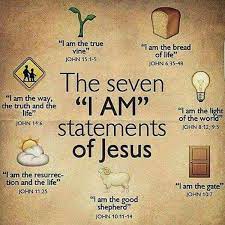
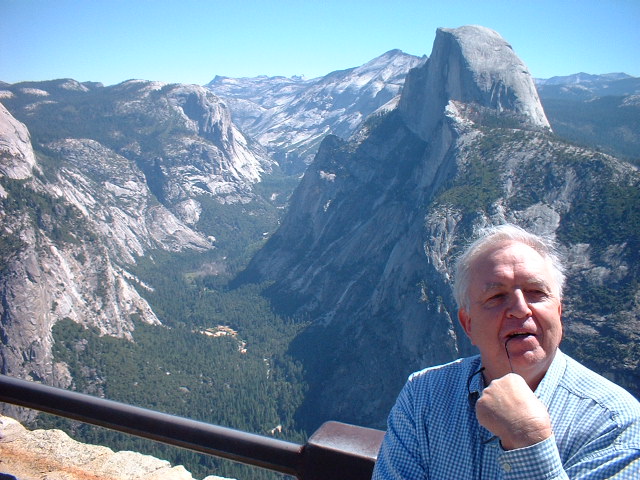

Lambert Dolphin's Main Library
Email is welcome: Lambert Dolphin
Archive for Newsletters
Library Annex (800+ new articles since 2018. Free, help thyself)